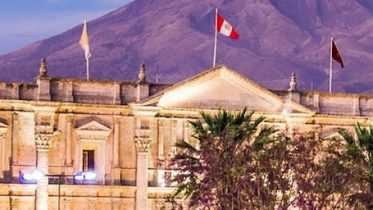IP Protection within the Framework of the Technical-Military cooperation between Peru and Russia
- 17 February 2016
- Articles
Military-technical cooperation between Peru and Russia is currently based on the “Agreement between the Government of the Republic of Peru and the Government of Russia on military-technical cooperation” signed in 2004 and in force since 2007.
With this agreement we were able to establish and define the rules for military-technical cooperation between the parties, which had already been growing since a few decades ago. To this end, a Peruvian-Russian Intergovernmental Commission was created as a space for arranging and coordinating policies, strategies and actions needed within the framework of this Agreement.
As part of them, and by virtue of what is stated in Articles 5 and 6 of the aforementioned Agreement, the Intergovernmental Commission was committed to implement mechanisms of mutual protection of confidential information and intellectual property involved in this area of bilateral cooperation.
Thus, the “Agreement between the Government of the Republic of Peru and the Government of Russia on mutual protection of intellectual property in the course of bilateral military-technical cooperation” –signed on December 2nd 2013 – came into effect on December 29th 2015; in it, both countries seek to meet the need to coordinate efforts and adopt effective measures to prevent and suppress violations in the use of intellectual property in the course of bilateral military-technical cooperation.
For this purpose, the agreement has implemented adequate regulation on the provision of products for military use; technology transfer and licensing, including training of personnel; conducting scientific research and experimental design; information protection; protection of intellectual property; among others; all of which is under the system of industrial compensation Offset.
Thanks to these joint efforts, military-technical cooperation between Peru and Russia, in place for more than four decades, has been strengthened and consolidated.
This fuels further growth in bilateral trade and supports projects Russian companies currently have in Peru, such as selling Peru helicopter fleets to combat drug trafficking and terrorism in the Peruvian jungle; setting up a repair, maintenance and assembly centre for Russian helicopters in Arequipa this year.
By strengthening bilateral cooperation in the military-technical field, both countries benefit.
On the one hand, Russia achieved increasing integration with Peru, an attractive country due to its great potential for development and sustained economic growth, which allows Russian products for military use to achieve a greater presence in the Latin American market.
For its part, Peru has a strategic ally with power in the manufacture and export of objects of military use, which opens a door for Peru’s modernization in the defense and security fields at an international level.








